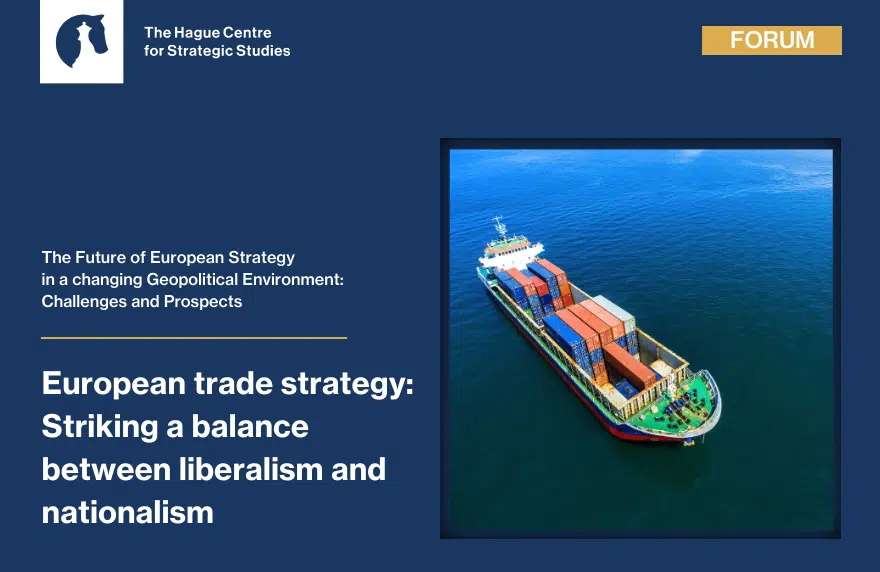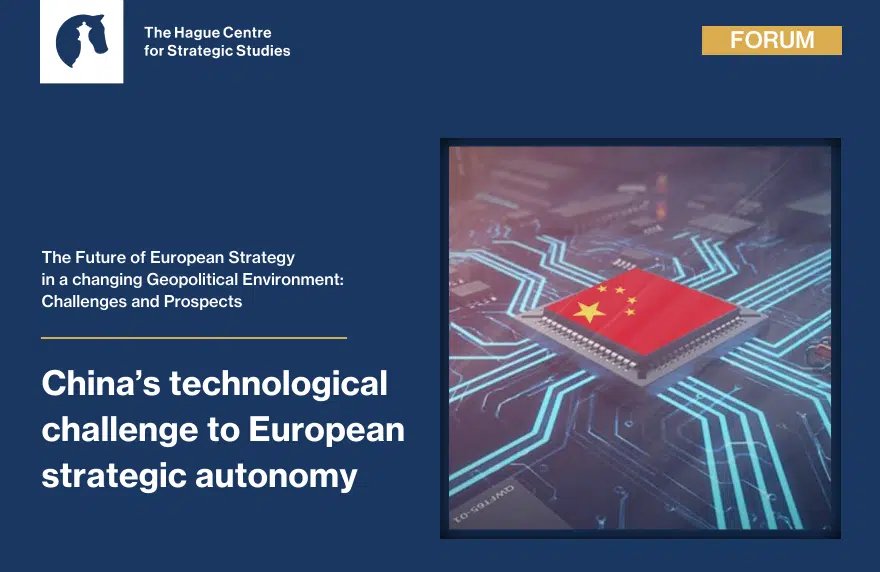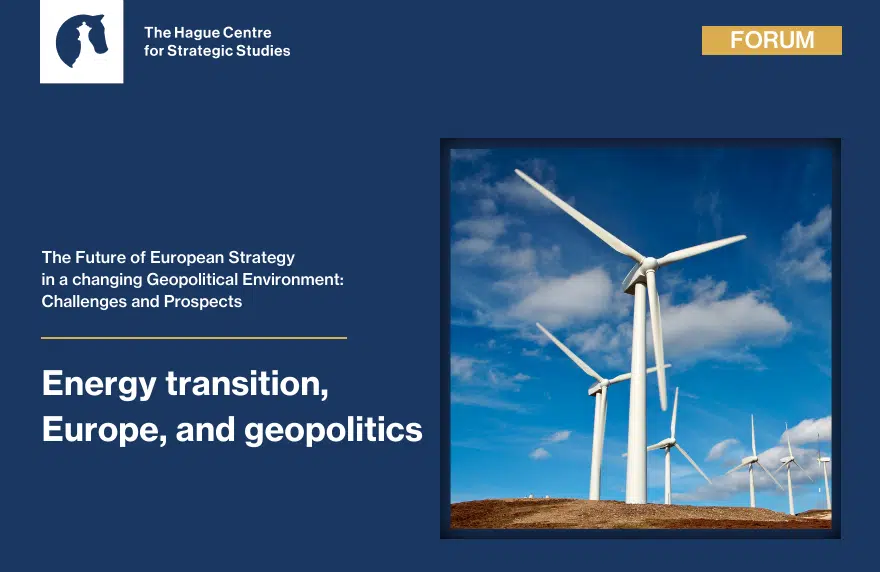Research
As competition and rivalry between the great powers increase, the overriding challenge for international politics in the first half of the 21st century is to maintain “one world”: one international order to which all states contribute, because they all subscribe to its core set of rules, which give all states the opportunity to build stable and mutually beneficial relations with any other state.[1] Ideally, a concert of the great powers embedded in strong multilateral institutions would play a leading role.
The alternative would be for the world to break apart again as the great powers gradually decouple from each other and try to forge mutually exclusive blocs. This would not be a cold war like the Cold War, since power is distributed more widely today than it was in 1945, when the US and the USSR towered above everybody else and decolonisation had yet to happen. But it would still spell economic crisis and render it impossible to address global challenges such as the climate crisis or a pandemic.
Moderation
Given its principled commitment to multilateralism, the European Union is well placed to foster multilateral cooperation – the only way to promote trust and mitigate tensions between the great powers. The EU could act as a mediating power: the one great power that can work with all of the others. Another reason why the EU is suited for this role is that as a state-like organisation, rather than a state, it does not have to care about national prestige. Great power status is not what legitimises the Union in the eyes of EU citizens; using its power to deliver effective governance does.
Absolved from the need to seek status at the expense of other powers, the EU can take a moderate stance. Brussels can focus on diplomacy rather than sabre-rattling; on fostering compromise rather than scoring points; on pragmatic solutions rather than prestige projects; on the common interest rather than rivalry. A moderate stance means favouring win-win solutions; pursuing one’s interests while respecting as much as possible the legitimate interests of others. It is a necessity in order to moderate great power tensions.
The EU already announced the leitmotiv of this moderating or mediating role in 2019, when it characterised China as a partner, a competitor, and a rival at the same time. Or, in other words: “cooperate when you can, but push back when you must”. Seek to involve all states in running the world order, but take action when they break its rules for interstate relations. This can be the EU’s approach toward all states, including the great powers.
The aim is not equidistance: the EU will obviously remain much closer to the US than to any other great power. The US is a partner (even an ally) as well as an economic competitor, but rarely a rival (though under Trump it certainly behaved as such on more than one occasion). But the EU approach does imply strategic autonomy: the independence to make its own decisions, and the capacity to implement them. Even in an alliance, one has to look out for one’s own interests.
Resolve
The downside of the EU’s ongoing development as a state-like organisation is that in many areas it still lacks sufficiently centralised decision-making, particularly in diplomacy and defence. Moreover, the EU’s strategic culture is young and immature. In spite of the announcement of a “geopolitical Commission”, the EU is still getting used to thinking about power, let alone employing it to achieve its moderate goals.
But let there be no misconception: even moderate goals cannot be achieved without power. EU objectives can be moderate or realistic in that they can be achieved through win-win solutions. But they must still be real, i.e. ambitious enough to safeguard the Union’s vital interests. Even moderate goals, therefore, demand the proactive use of all instruments of power: political, economic, and, if and when required, military. EU decision-making often produces timidity instead of moderation, however, and irresolution instead of circumspection. That makes a real Grand Strategy impossible. The EU must be moderate – but resolutely so.
To create that resolve, and then to translate it into effect on the ground, the EU must first of all think of itself as a great power. A power with its own distinctive role – a mediating role – but a power nonetheless; a pole of the multipolar world, on the same level as the US, China and Russia.
Compartmentalisation
Putting “cooperate when you can, push back when you must” in practice means compartmentalising: not letting a dispute in one area contaminate all dimensions of a relationship with another power, unless vital interests are at stake.
Thus, the EU could announce the Comprehensive Agreement on Investment (CAI) with China in December 2020, and adopt (mostly symbolic) human rights sanctions against China in March 2021. China, however, refused to acknowledge this as an example of finely calibrated diplomacy (which one hopes it was on the part of the EU), and massively overreacted by targeting members of parliament, academics, and entire EU bodies. The European Parliament rightfully refuses to even consider ratifying the CAI as long as the Chinese countermeasures are in place.
Some, however, go much further and cannot see the CAI enter into force until the human rights situation in Xinjiang or in China as a whole improves. That would be the end of compartmentalisation and would constitute a major change of strategy. Now that the US has actually moved closer to the EU compartmentalisation approach (the communiqué of the June 2021 EU-US Summit copied the language of partner – competitor – rival), the EU should not unwittingly stray from the course itself. For the alternative to compartmentalisation is ever greater strain on relations, ever less cooperation, and eventually decoupling.
The EU’s course does require patience, as well as a keen awareness of what is vital and what is not, and of what leverage the EU has. The EU has a moral duty to criticise human rights violations everywhere, but it must understand that this will not result in short-term change – not even if it applies sanctions that bite – if the targeted state judges its vital interests to be at stake. Having once adopted a universal human rights instrument, the EU could not not apply it to Russia and China (though such an instrument seems more reflective of the power relations of the 1990s than the 2020s). But Russia and China are authoritarian states; new grounds for sanctions can be found every single day – yet sanctions will not improve the human rights situation on the ground.
A much more effective instrument would be binding due diligence legislation, obliging any product or service that is offered on the EU’s single market to adhere to certain minimum conditions throughout the supply chain (such as the absence of forced labour). The EU should also signal that without the CAI, it is not just business as usual. Reciprocity in market access and applying the rules of the international economic order (towards which the CAI would be a small step) should be a precondition for any further opening of the EU’s market; reciprocity could also be a criterion in the EU’s investment screening mechanism. Otherwise, there is little incentive for China to make a move to revive the CAI, since it logically mostly contains obligations for Beijing – the onus is on China to offer the EU the same market access that it has long enjoyed in Europe.
Meanwhile, the EU would do better to reserve effective sanctions for cases when other powers cross the line in their foreign policies, rather than their domestic policies, and directly threaten Europe’s security or international peace. Russia’s annexation of the Crimea and China’s de facto annexation of much of the South China Sea are cases in which real pushback is needed. But whereas the former has led to sanctions, the latter has been met only with a weakly-worded EU declaration.
More effective pushback is also required when the EU itself is targeted by Chinese and Russian hybrid actions, such as espionage, sabotage, and disinformation, including in cyber space. In July 2021, for the first time, the EU openly called out the Chinese government for malicious cyber activities undertaken from its territory. But Brussels ought to go much further. The EU requires a doctrine of deterrence of hybrid threats. Building up resilience is the passive element: deterrence by denial. But the active element, deterrence by punishment, must be added. In a spirit of solidarity and mutual assistance, the twenty-seven ought to consider a cyber-attack or economic blackmail against one Member State to be directed against them all, and respond collectively by taking diplomatic or economic sanctions – or by launching a counter-attack in cyber space.
If the EU does not muster the resolve to push back when it must, it will not be taken seriously as a great power by the other great powers, who will then see cooperation as a chance to take advantage of the EU rather than as a quest for win-win solutions. Once more, a moderate stance requires power and the will to use it.
Connectivity
The EU’s connectivity strategy is a key instrument to pursue the overall objective of “one world”. The aim is to put an appealing investment offer on the table so that no country has the option only of working with China’s Belt and Road Initiative (or Russia’s Eurasian Economic Union). By building deep economic relations with all great powers rather than putting all their eggs in one basket, states can safeguard their sovereignty, while the EU can prevent the emergence of exclusive spheres of influence. The main condition is that states create a level economic playing field and treat all foreign investors equally. Moderation is called for: overloading the connectivity agenda with other conditions (on democracy and human rights) risks being counterproductive. As stated above, effective due diligence legislation has much more potential to create real improvement for workers on the ground.
In 2018 already, the EU adopted an EU-Asia Connectivity Strategy, and in 2019 a connectivity partnership was concluded with Japan. But apart from announcing a second partnership – with India, in 2021 – little or nothing of concrete value has happened. The strategy remains sound, though; indeed, the Building Back Better for the World initiative that the US announced at the June 2021 G7 meeting in Cornwall is exactly the same approach. In July 2021, the Council of the EU reiterated its commitment to the connectivity agenda. The EU will not get a third chance to make this crucial instrument work.
Conclusion
EU Grand Strategy has always been moderate in terms of its ends: the EU aims to safeguard its way of life (that is the point of Grand Strategy), but it harbours no expansionist designs, nor does it dream of domination. For as long as possible, it must also be moderate in terms of the ways: pursuing its interests by working with rather than against others. But when others forswear moderation and act as rivals, the EU must resolutely stand up for its vital interests.
The one issue on which the EU cannot afford to be moderate is the defence of its own democracy. The greatest threat to the European way of life is not external, but internal: Europe’s very own antidemocratic forces. They fester in all EU Member States; in some, alas, they even control the government. Having too long believed that democracy is irreversible (though the history of the interbellum period suggested otherwise), the EU was far too slow to react to the hollowing out of democracy. Finally, in 2021, the EU firmed up and decided to stop subsidising would-be autocrats in its Member States. The Hungarian government’s scandalous anti-gay legislation was one provocation too many. Member States that do not respect the fundamental rights and freedoms and democratic principles that are enshrined in the Treaty on European Union will suffer severe financial punishment.
In the end, however, the aim is to restore EU unity. That will remain a significant challenge. It is self-evident, however, that only a fully united and resolute EU has a chance of safeguarding its vital interests in a world shaped by great power competition. A nuanced approach, a resolutely moderate Grand Strategy, will not be possible if any Member State can selfishly undercut EU policy whenever it sees a short-term national advantage. Unity in Diversity, is the EU’s motto; but the Belgian motto is even more apropos: L’Union Fait la Force.
Prof Dr Sven Biscop
Egmont Royal Institute for International Relations (Belgium) and Ghent University (Belgium)
[1] Sven Biscop, Grand Strategy in 10 Words. A Guide to Great Power Politics in the 21st Century (Bristol University Press, 2021).







